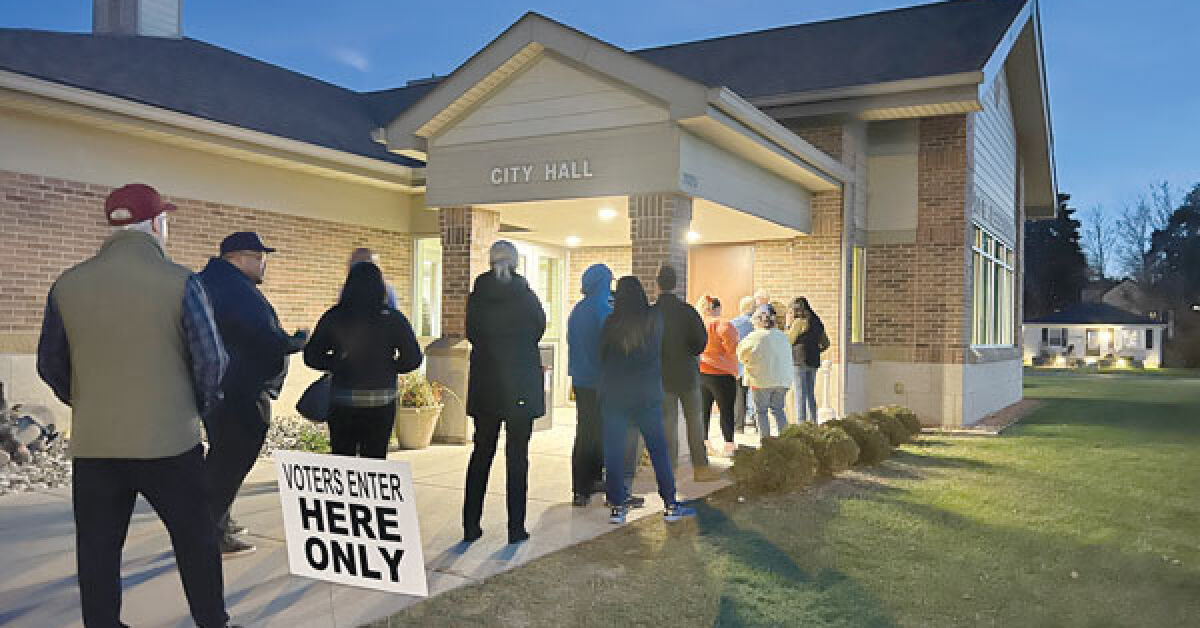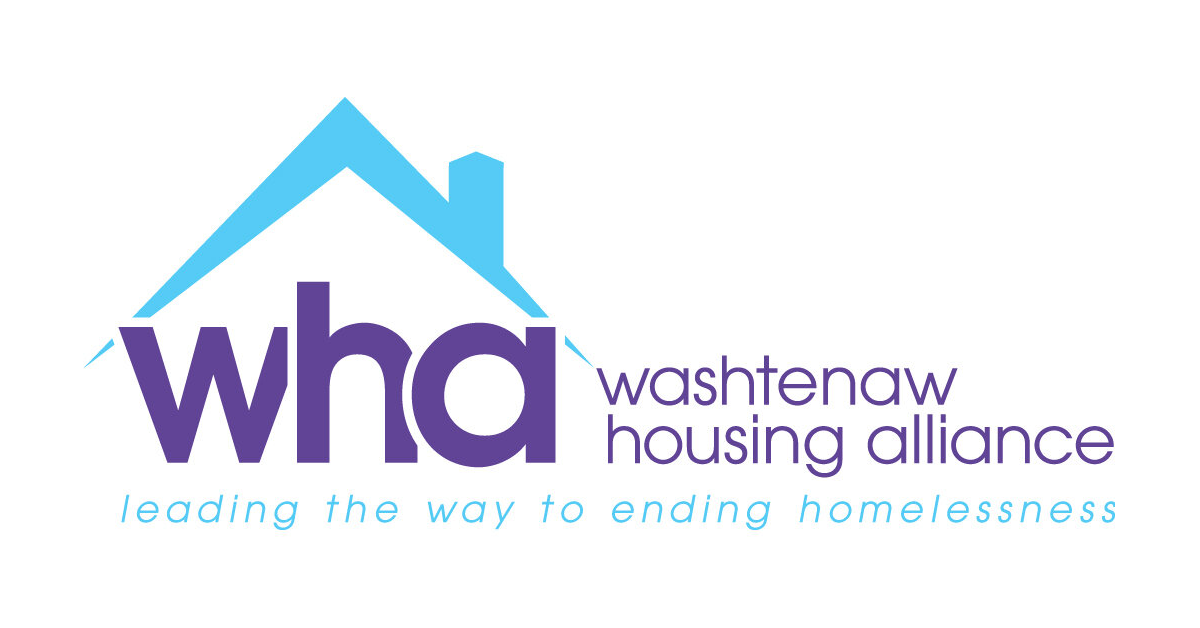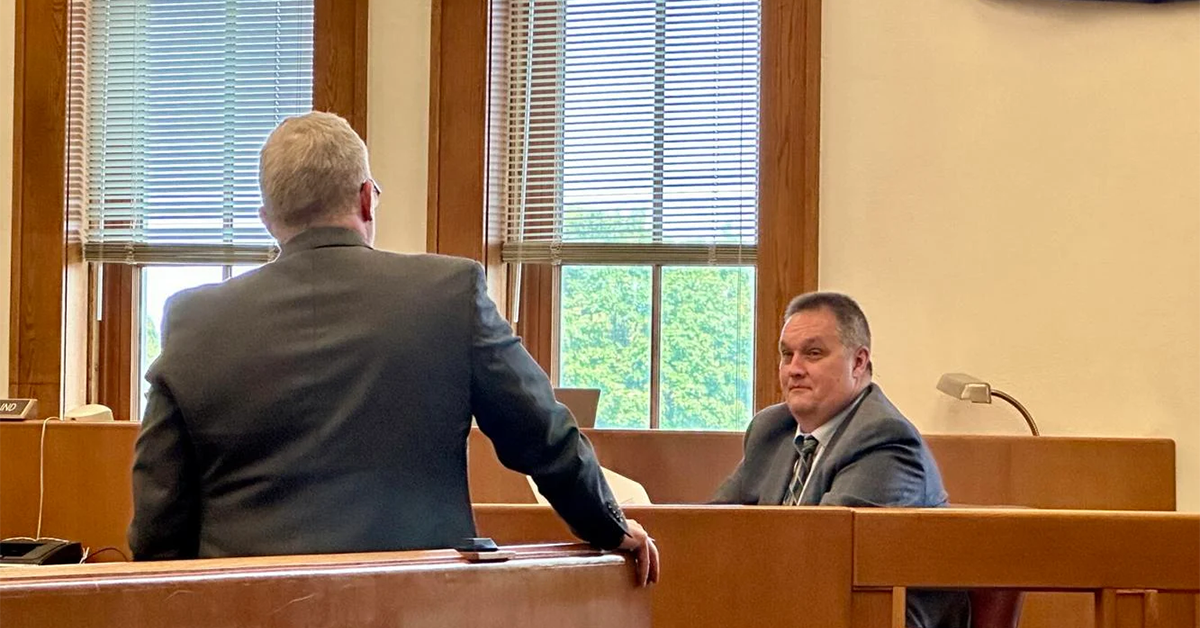Keego Harbor Revisits Marijuana Ballot Initiatives

In a consequential decision for Keego Harbor, Michigan, residents are once again poised to shape the marijuana landscape within the city limits. This represents the second call in a year for Keego Harbor's electorate to voice their stance on the contentious issue.
A Glimpse Back in Time
Back in 2008, Michigan as a state gave the green light to medical marijuana, and by 2018, recreational use had joined the ranks of legality. Despite statewide sanctioning, the discretion still lies with local municipalities to either embrace or shun commercial marijuana activities.
Currently, Keego Harbor holds an 'opt-out' status, meaning sales of both medical and recreational marijuana are not allowed. This stance was put to test last year when a ballot initiative seemed set to redefine the city's marijuana framework.
This proposal from the group named 'Oakland Cares' sought to discontinue Keego's ban on medical marijuana establishments. Moreover, it called for the establishment of a city department dedicated solely to the medical marijuana domain, aiming to fine-tune local facility regulations.
While the initiative was backed by a majority (637 voting in favor against 527 opposed), a subsequent judicial decision by the Oakland County Circuit Court rendered it null and void.
In shedding light on this, Anthony Chubb, an attorney affiliated with Giarmarco, Mullins & Horton P.C., mentioned that the changes proposed exceeded the limits of a mere charter amendment and necessitated a charter revision, as per Michigan law. This view was validated by the Circuit Court.
Keego's Leadership Weighs In
Mayor Rob Kalman expressed concerns about the past proposal, noting the procedural lapses that led to its rejection. "They failed to adhere to the right process for a charter revision," Kalman emphasized.
Fast forward to today, and Keego still remains in the 'opt-out' zone. However, the forthcoming general election on November 7th might herald change. The City Council has greenlit a proposed amendment for the ballot. If it gains traction, the city would permit a single marijuana retailer by ordinance, while keeping all other marijuana-based enterprises at bay.
However, there's a twist. Another group, named by Chubb as the "Open Stores in Keego Harbor Committee", has floated an ordinance and charter amendment for the same ballot. Kalman expressed reservations, "For a city as petite as Keego, with a population just touching a few thousand, is there really a need for two marijuana stores?"
Given the proclivity of Keego residents to support marijuana businesses, the City Council is striving to retain some reins over the decision-making process. Kalman reaffirmed his faith in local control, stating that while they're open to marijuana sales, they're not in favor of grow operations.
A Tale of Two Proposals
The first proposal, supported by Keego, is succinctly titled, "City Charter Proposed Amendment to Allow a Marihuana Retailer by Ordinance & Prohibit Establishments". It clearly outlines the intention to permit a single retailer and prevent other marijuana endeavors.
The alternative, coming from an "outside group" as Kalman phrases it, would replace Keego's current status, paving the way for two retail cannabis establishments.
The pro-marijuana faction, represented by the Open Stores in Keego Harbor Committee, underscores the financial boons from marijuana sales. According to their website, "voteyeskeego.org", Keego Harbor is missing out on substantial state excise tax revenue from retail cannabis sales, a figure that touched nearly $52,000 per store in 2023.
A Dissenting Voice
Not everyone is on board with the marijuana movement. Michael Karson, the only City Council member to vote against placing a city charter proposal on the ballot, feels that marijuana dispensaries don't align with Keego's vision, especially given its educational institutions.
The Road Ahead
If both amendments – one endorsing a solitary retailer and the other advocating for two – find favor with voters, the one accruing more votes would take precedence, says Chubb.
Mayor Kalman encapsulated his message for the electorate by emphasizing the importance of 'off-year' elections. He hopes that residents take an informed stance and vote wisely.
In Conclusion
Keego Harbor, at the crossroads of a pivotal decision, represents a microcosm of the broader debate on marijuana commercialization. While the financial perks are undeniable, the concerns about societal impact and local ethos are equally valid. The upcoming election will provide a keen insight into which way the wind blows in this Michigan city.
Michigan Marijuana and Its Ripple Effects: Lessons and Lookouts

The marijuana wave sweeping across the U.S. shows no signs of slowing down. As neighboring Ohio contemplates its cannabis future, Michigan stands as a testament to the complexities and potential of a legalized market. Drawing from the experiences of states like Colorado, California, and even Ohio's medical marijuana journey, Michigan offers a multifaceted look at the ripple effects of marijuana's integration into mainstream society. This article delves into the economic, societal, and unexpected implications that have emerged in the wake of marijuana legalization, painting a comprehensive picture of a rapidly evolving landscape.
Support us as a patron to access this exclusive article.
While we're reluctant to put content behind a paywall, we value our patrons by offering exclusive content just for them. Rest assured, our core mission of providing unbiased news stories remains accessible to all. Our aim is to deliver informative content with minimal ads, and your support means the world to us.
View our PatreonBirmingham's Ballot Battle over Marijuana

This November, the residents of Birmingham have an important decision to make. They will cast their votes on an amendment proposal that could reshape the city's stance on marijuana regulations.
Back in 2018, the Michigan Regulation and Taxation of Marihuana Act (MRTMA) was enacted, legalizing the recreational use of marijuana for those aged 21 and above. However, the Birmingham City Commission made a conscious choice to exclude marijuana establishments within their city limits.
Nevertheless, the MRTMA grants citizens the power to instigate an ordinance permitting marijuana establishments. This can be achieved by launching a petition. If an external organization were to set this in motion, they would essentially dictate the terms, regulations, and qualifications of the ordinance. In simpler terms, a business keen on selling marijuana in Birmingham could gather signatures, pushing their proposal onto the ballot.
Mary Kucharek, City Attorney for the City of Birmingham, commented, "For the sake of our city, the responsibility of determining our community's future should lie with the city government and its residents."
In light of these potential external influences, the city has chosen to be a part of the ballot initiative. Mayor Therese Longe pointed out that nearby communities have been subjected to ballot language imposed on them by external entities. Some of these petitions have even been accused of misleading voters. She emphasized the city's proactive approach, stating, "We need to be ahead of the curve, allowing Birmingham residents to have their say."
The official ballot will pose the question: "Should the Birmingham City Code ordinance, which currently bans marijuana sales, be revised to permit one medical marijuana facility and one recreational marijuana establishment in Birmingham?"
Come November 7th, residents will mark their choice. If the proposal is rejected, the door remains open for external parties to propose a ballot. Mayor Longe, however, hopes a 'no' vote will convey to these groups that Birmingham's residents aren't in favor. On the other hand, a 'yes' vote would grant the city the authority to determine the number of facilities and oversee the entire procedure.
Mayor Longe elaborated on the implications of external entities drafting their ballot language. "If it's our ordinance, we've designed it to prioritize Birmingham residents' safety, offer the city maximum legal control, and set our criteria for awarding licenses."
Three potential zones have been identified for the proposed medical and recreational marijuana facilities. These are the southeast corner of Maple and Cranbrook, the Triangle District, and a segment of the Rail District. The MRTMA mandates that these facilities maintain a specific distance from educational institutions and religious establishments. In line with the city's drafted ordinance, these facilities would only be permitted in existing retail zones.
Mayor Longe clarified, "The identified areas adhere to the stipulation of being retail zones but also ensure they aren't within 1,000 feet of a school or religious building."
While the city doesn't have the authority to initiate a complete marijuana sales ban, an external group can launch a petition to that effect.
Kucharek reinforced the city's commitment to its residents, stating, "Our primary goal is to let the community voice their preferences rather than letting only the Birmingham City Commission or external entities decide."
For those interested in delving deeper:
-
To view the amendment's proposed changes, head to: https://bhamgov.org/proposedchanges
-
For a detailed map of potential facility locations, visit: https://bhamgov.org/mhmap
Marijuana Revenue Paves Way for Housing Support in Washtenaw County

A groundbreaking initiative named "Rising Hope for Housing" has been launched with the intent of supporting Washtenaw County residents who have been affected by the criminal justice system. The core objective of the program is to provide financial aid alongside a variety of other support services, ensuring residents can steer clear of evictions while bolstering housing stability and promoting self-reliance.
Funded by Ann Arbor's marijuana tax revenue contribution of $400,000, this pilot initiative is set to continue until June 2024. The program is accessible to county households possessing or approved for a housing choice voucher, especially if they lack supportive services and have a household member who has been affected by the justice system.
City Council Member Cynthia Harrison of the D-1st Ward shared the news of the program at the council assembly on Monday, October 2nd, announcing that applications are currently welcome.
A range of services are incorporated into the program, including trauma-sensitive case management, peer support, mentorship, assistance during move-ins, support with security deposits, and assistance with overdue rents and potential utility disconnections. These valuable services are extended by prominent community organizations such as A Brighter Way, Catholic Social Services, Offender Success, Shelter Association of Washtenaw County, and SOS Community Services.
For those seeking more details or looking to benefit from the program, they are advised to reach out to the Washtenaw Housing Alliance.
It's worth noting that the city's decision to allocate marijuana tax revenue towards this initiative was made during the 2023-24 budget discussions in May. The Council highlighted that federal laws penalizing marijuana usage have unequally affected minorities and those of lower economic strata.
The council declared, "It's essential to recognize and rectify historical injustices and systemic obstacles to champion equity and mold a more inclusive society. The majority of those impacted by these laws, especially concerning marijuana offenses, have been individuals from Black and Brown communities, which showcases an underlying systemic bias."
Moreover, individuals affected by the criminal justice system commonly experience trauma, facing hurdles like housing instability, joblessness, limited educational and training opportunities, as well as mental health and addiction problems.
City representatives have expressed optimism that the services integrated within "Rising Hope for Housing" will not only decrease chances of reoffending but will also overcome systemic challenges, uplift mental health, boost the economy, and support the returnees and their families.
Michigan Explores Tax Exemptions for Tribal Land-Based Marijuana Sales

The House Committee on Regulatory Reform has successfully forwarded Senate Bill 180 to the full House of Representatives without any changes. Previously, in June, the Senate had greenlit the proposal with a 29 to 9 majority.
Introduced by Republican Senator Roger Hauck, supported by six Democrat co-sponsors, the bill seeks to permit the Cannabis Regulatory Agency (CRA) to collaborate with an Indian tribe regarding marijuana-related businesses. A notable highlight of this legislation is that tribal marijuana business sales within Indian lands will not be subject to the State's customary 10% marijuana excise tax.
Should the House approve the proposal, it will next proceed to Governor Gretchen Whitmer's desk for evaluation.
It's essential to note that while Michigan legalized marijuana in 2018 via Proposal 18-1, the regulation did not address tribal land-based businesses. Senate Bill 180 aims to amend this oversight within the Michigan Regulation and Taxation of Marihuana Act (MRTMA). Key provisions include:
- Empowering the CRA to collaborate with an Indian tribe on marijuana businesses, provided certain conditions are met.
- Prohibiting the CRA from employing individuals with financial interests in tribal marijuana ventures.
- Asserting that tribal marijuana business sales on Indian lands will not be subjected to the State's 10% excise tax.
For a more comprehensive look into the proposal, you can access the full text of Senate Bill 180 here.
Senate Bill 180 Overview
The proposed legislation aims to refine the "Michigan Regulation and Taxation of Marihuana Act" of 2018 by making amendments to various sections. The essence of the bill revolves around:
- Establishing what constitutes "Cannabis regulatory agency."
- Defining terms like "Cultivate," "Indian lands," "Indian tribe," and "Industrial hemp."
- Outlining the responsibilities of the cannabis regulatory agency, including rule promulgation, issuing licenses, and ensuring marihuana establishment compliance.
- Setting forth rules for licensing, security measures, advertising restrictions, and more.
- Detailing the rights and non-penalizing actions for marihuana growers, processors, transporters, retailers, and microbusinesses.
- Proposing an excise tax of 10% on marihuana sales, with specific exemptions for tribal marihuana businesses and medical marihuana sales.
The bill's enactment is contingent upon the passage of Senate Bill No. 179 of the 102nd Legislature.
Michigan Marijuana Licensing Drama: The Battle Continues in Menominee

In a new chapter of the unfolding legal drama surrounding Menominee's marijuana licensing, recent developments have put a temporary halt to the issuance of further licenses, revealing deeper intricacies and ongoing issues in local governance and adherence to state law. The City of Menominee, nestled in Michigan, has found itself entwined in a complex lawsuit that challenges the transparency and ethical considerations of its marijuana licensing and ordinance proceedings.
Judge Mary Barglind recently issued a preliminary injunction, asserting that the city cannot undertake any further actions in line with its altered marijuana ordinance or violate the Open Meetings Act during the ongoing state lawsuit. Originating in August, the lawsuit has been spearheaded by a ballot committee named the Committee to Stop Unlimited Marijuana Shops, along with Rize and The Fire Station.
The crux of this legal action centers around allegations of violations concerning the Open Meetings Act and city charter. If victorious, the plaintiffs could see the latest marijuana ordinance invalidated, prohibiting the city council from modifying the number of allowed marijuana shops or issuing various permits until the citizens of Menominee have had their say through a certified, referendum petition. Furthermore, the plaintiffs are advocating for public meetings without closed sessions and for licenses to be limited to only two.
Notably, Menominee City Manager Brett Botbyl has testified that the city did, in fact, violate the Open Meetings Act, shedding light on a pattern of continued non-compliance that Judge Barglind found far from mere technical violations. The judge asserted that this repeated non-adherence to the Act might, in a permanent injunction hearing, be deemed as impairment to the public's rights.
Barglind's decision and Botbyl's admission arrive amidst a backdrop of criticisms directed at the city's handling and communication related to the marijuana lawsuits. Attorney Mike Cox, representing Rize, emphasized a "routine disregard" for keeping Menominee's citizens informed about governmental actions before and after pivotal meetings.
In a perplexing twist, even the introduction of appropriations seemed shrouded in a lack of clarity and transparency. Mayoral candidate Casey Hoffman announced in a special meeting that an allocation to "back the blue" would soon be introduced, despite neither the mayor nor Botbyl having prior knowledge of such financial adjustments. Botbyl's testimony revealed that even council members and city attorneys were in the dark about the appropriation's introduction, raising further questions about internal communication and governance within the city council.
This legal entanglement also offers a closer look at the dealings between the city and various marijuana companies. Distinct disparities were unearthed in the stipulations and requirements for original applicants like The Fire Station and Rize compared to companies like Highwire Farms and NU Group who entered through a settlement. This discrepancy is emphasized by the fact that no other licenses can be issued until those six companies from the settlement secure licenses and locations, putting other applicants on an indefinite hold.
Botbyl pointed fingers at the city website and the EagleHerald for being culpable for Open Meetings Act violations, attributing them to delays in publishing minutes. Nevertheless, the resulting impact leans towards a less informed Menominee citizenry, as the city's internal and external communication pipeline appears fractured at best.
As this saga unfolds, it further intertwines with a history of alleged murky ethics and clandestine dealings that have punctuated Menominee's marijuana licensing landscape. A previous article delves into past allegations, including potential conflicts of interest and battles between the city council and Menominee voters, presenting a detailed overview for those wanting to explore the initial stages of this ongoing dispute.
Navigating through this intricate web of lawsuits, settlements, and ethics queries, Menominee stands as a striking example of the challenges emerging in the legal marijuana business landscape, where high stakes and a potential influx of revenue appear to be entwining with governance, ethics, and transparency in ways that the citizens and businesses of Menominee are wrestling to untangle.
It remains to be seen how these ongoing legal battles and ethics inquiries will resolve and what impacts they will have on the marijuana industry, local governance, and the citizens of Menominee, Michigan. As this situation continues to unfold, ensuring clarity, transparency, and adherence to both legal and ethical guidelines will be paramount in navigating the troubled waters of marijuana licensing and governance.


 Helpful Links
Helpful Links